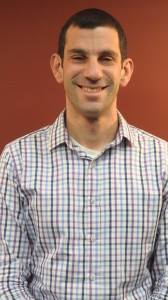By Josh Dredze, Psy.D
I’m not a New Yorker. Born and bred on the north side of Chicago, I still wear my Cubs hat proudly. Yet for social and professional reasons, I have found myself on the east coast and New York the last number of years. To that end, I’ve noticed, I could easily get into a ‘mood’ or negative thinking around my geographic surroundings. “New York is so loud.” “Why is there always traffic?” “Couldn’t it be cleaner?” More mindful of these thoughts, I recently decided to take a more assertive approach in addressing them.
We all make assumptions. Evolutionarily, this is adaptive. If we didn’t make assumptions, grocery shopping would take hours if not days. How do I know this product is really healthier for me or that I should buy the cheapest toothpaste? But, we assume that if a label advertises certain features or if our friend favored a certain product, it is best for us. This principle has been largely researched and studied in cognitive psychology and decision making. It is positive and helpful.
At the same time, making assumptions can get in our way. “I’m not a New Yorker and therefore everything in New York is bad.” Yes, I like my Chicago roots. Yes, I appreciate where I’m from and the positive features of my hometown. However, that does not make New York ALL bad. Once I assume I don’t like New York, I start looking for all the negative features. What about all the things I love? Runs through Central Park. Easy access transportation. World-renowned entertainment and professional opportunities. While my assuming has benefited making more day-to-day decisions, it has led me to miss out on the incredible part of living in such a great city.
So, while assumptions and heuristics can continue to make our grocery shopping easier, let’s not allow negative assumptions to get in our way. Assumptions about our environment or people impede us. When we free ourselves from assumptions, we can be increasingly positive, more open to opportunity, and have fewer demands on others. Less assuming means a world of greater possibilities.

